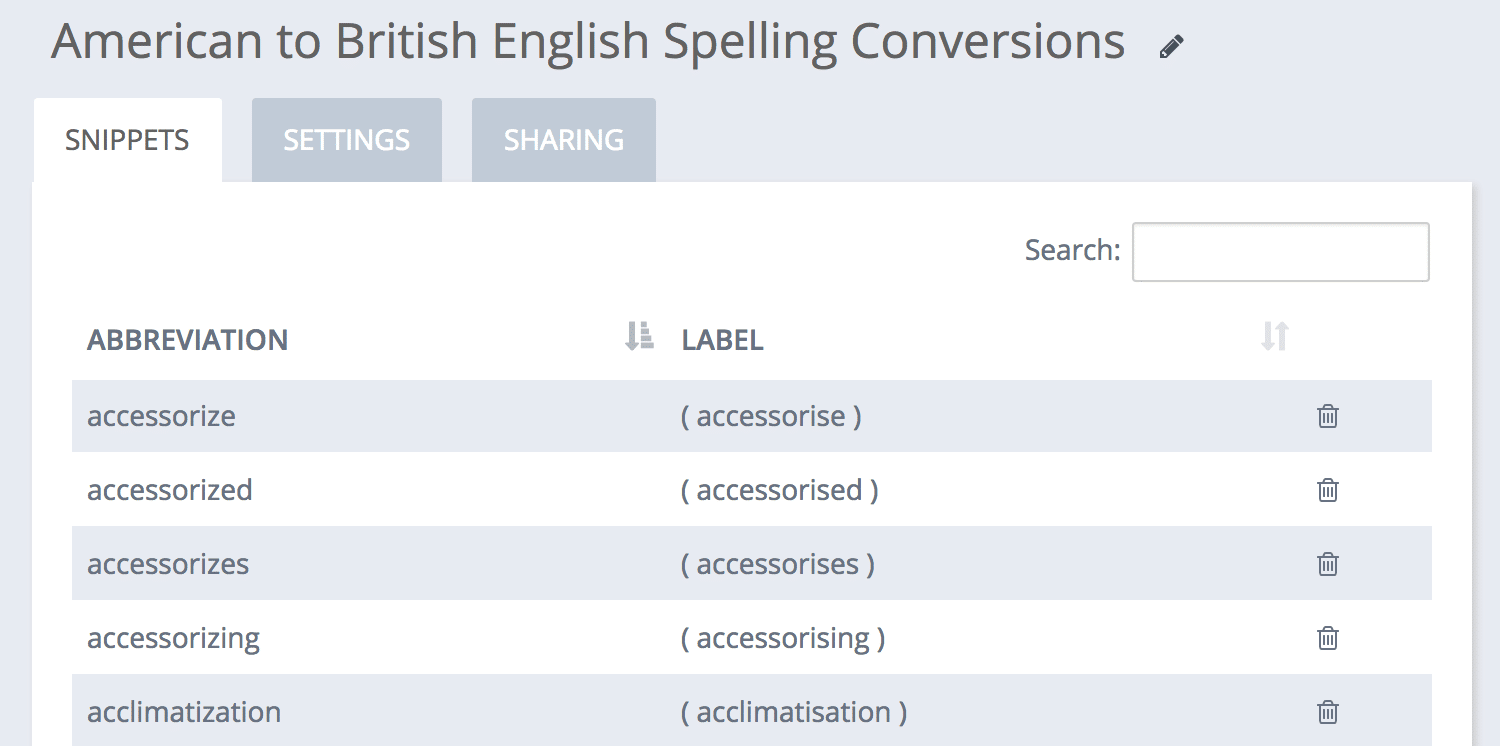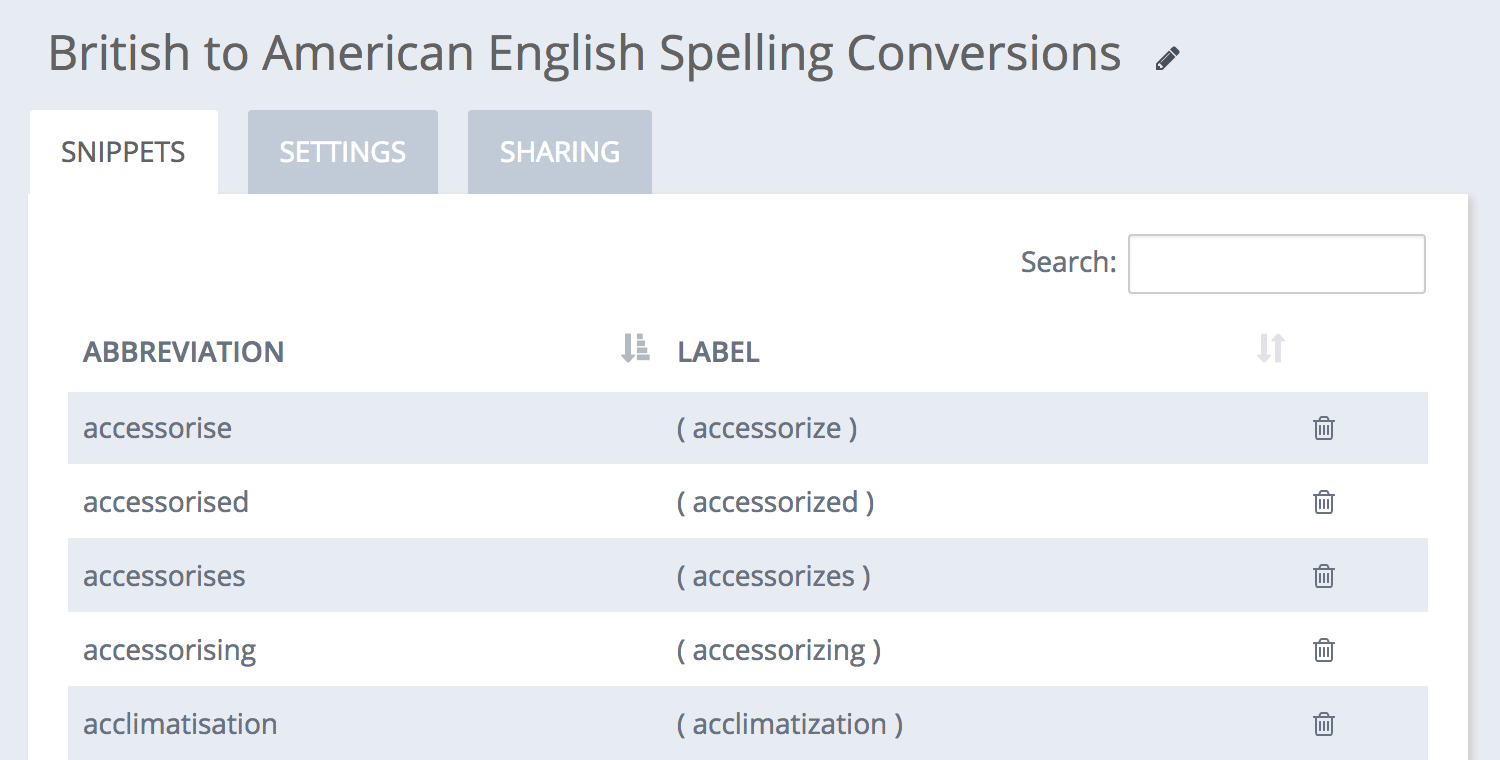One language, two types of spelling. All thanks to colonies, geography, and a few hundred years of linguistic drift.
It’s easy to get caught by the differences between American English (AmE) and British English (BrE), whether writing for clients overseas, submitting to an international journal, or trying to keep a brand’s tone consistent.
If you want to sound like you’re from a specific side of the pond, TextExpander can help. When you accidentally type ‘favorite’ to your UK client – pop! – the alternate spelling, ‘favourite’, will appear.
Differences between British and American English
The differences between British English and American English are diverse and occur at various levels of the language, including vocabulary, spelling, grammar, and pronunciation. Here’s a breakdown:
- Vocabulary: Many everyday words are different in BrE and AmE. For example, in the UK, you “fill in a form,” while in the US, you “fill out a form.” A car has a “boot” in the UK and a “trunk” in the US.
- Spelling: British and American English have different spelling conventions. Words ending in “-our” in British English, like “colour” or “favour,” typically end in “-or” in American English, becoming “color” and “favor.” Similarly, words ending in “-ise” in British English often change to “-ize” in American English, like “realise” vs. “realize.”
- Grammar: There are some grammatical differences as well. For instance, in British English, collective nouns can take both singular and plural verb forms (“The team is winning” or “The team are winning”), while in American English, they usually take the singular (“The team is winning”). Another difference is the past simple vs. present perfect tense. In American English, the past simple can be used whereas British English would use the present perfect. For instance, AmE might say, “I already did that,” whereas BrE would say, “I have already done that.”
- Pronunciation: Pronunciation can vary significantly between BrE and AmE. Vowels are pronounced differently, and the stress on multi-syllable words can differ. For instance, the word “schedule” is typically pronounced “shed-yool” in BrE and “sked-yool” in AmE.
- Idioms and Phrases: Certain idioms and colloquial phrases are unique to each version of English. For example, “I couldn’t care less” in AmE might be expressed as “I could care less,” although the former is also gaining traction in AmE.
- Date Formats: The format for writing dates also differs: in the UK, it’s typically “day-month-year,” while in the US, it’s “month-day-year.”
- Punctuation: There are some differences in punctuation use, such as the placement of punctuation with quotation marks. In AmE, commas and periods are placed inside quotation marks, while in BrE, they are usually placed outside unless they are part of the quoted material.
These differences can lead to misunderstandings or confusion for learners and speakers of English as a second language. Still, in general, American and British English speakers can understand each other without significant difficulty.
Words that are spelled differently in British and American English
Here’s a table of common spelling differences between British and American English words:
| British English (BrE) | American English (AmE) |
|---|---|
| Colour | Color |
| Favour | Favor |
| Honour | Honor |
| Labour | Labor |
| Neighbour | Neighbor |
| Centre | Center |
| Metre | Meter |
| Theatre | Theater |
| Analyse | Analyze |
| Breathalyse | Breathalyze |
| Paralyse | Paralyze |
| Cheque | Check |
| Programme | Program |
| Licence (noun) | License |
| Defence | Defense |
| Offence | Offense |
| Practise (verb) | Practice |
| Catalogue | Catalog |
| Dialogue | Dialog |
| Travelling | Traveling |
| Jewellery | Jewelry |
| Ageing | Aging |
| Pyjamas | Pajamas |
| Tyre | Tire |
| Gaol | Jail |
The Snippet Group: American English to British English
Join this Snippet group to convert American English spelling to British spelling.

Before installing TextExpander or the Snippet group, you can try it now in your web browser:
The Snippet Group: British English to American English

Join this Snippet group to convert British English spelling to American English spelling.
For You and Your Teams, Across the Globe
Don’t forget, you can use British/American spelling snippet groups to keep your colleagues’ spelling consistent, no matter where they’re based.

